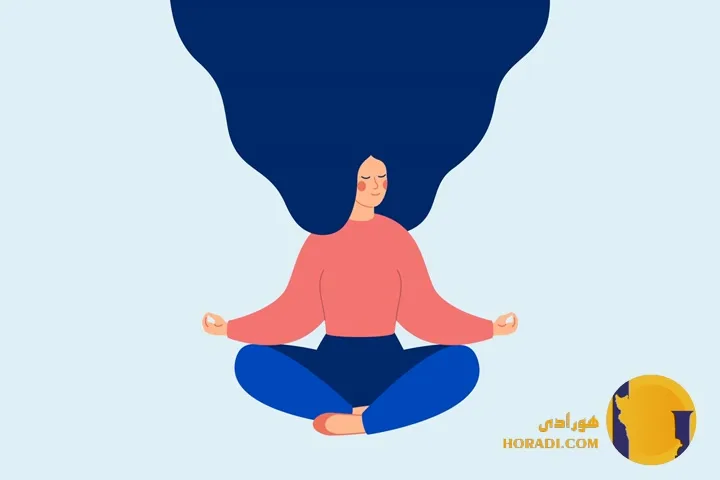
Benefits of meditation backed by science
In a world filled with constant distractions, stress, and information overload, meditation has emerged as one of the most powerful tools for cultivating inner peace, resilience, and mental clarity.
Once considered a practice rooted mainly in Eastern spiritual traditions, meditation is now firmly backed by modern science. Over the past three decades, neuroscientists, psychologists, and medical researchers have studied its effects on the brain, the body, and overall well-being. The findings are clear meditation is not just a spiritual habit but a scientifically validated way to improve mental and physical health.
This article explores the science-backed benefits of meditation, from reducing stress and anxiety to improving focus, boosting immunity, and even reshaping the brain.
What Is Meditation?
Meditation is a mental practice that involves focusing attention, often through techniques like mindfulness, breath awareness, visualization, or mantra repetition. While it takes many forms across cultures, its essence is about training the mind to achieve a state of calm, awareness, and balance.
In scientific studies, the most commonly researched styles include
- Mindfulness meditation Focusing on the present moment non-judgmentally.
- Transcendental meditation Using mantras to achieve relaxation and awareness.
- Loving-kindness meditation Cultivating compassion for oneself and others.
- Body scan meditation Bringing attention to different parts of the body.
These variations may differ in technique, but their benefits overlap significantly.
1. Meditation Reduces Stress
Perhaps the most widely recognized benefit of meditation is its ability to reduce stress. When people meditate, they lower the production of cortisol, the hormone associated with stress. Chronic stress has been linked to heart disease, obesity, sleep disorders, and depression, making stress reduction a major public health priority.
Brain imaging studies show that meditation reduces activity in the amygdala, the part of the brain responsible for the fight-or-flight response. This helps individuals respond more calmly to daily challenges rather than reacting impulsively.
Key takeaway Meditation creates measurable reductions in stress hormones and calms the brain’s stress circuits.
2. Meditation Improves Emotional Health
Meditation fosters a more positive outlook on life. Clinical research suggests that mindfulness practices can reduce symptoms of depression and anxiety while enhancing emotional resilience. Regular meditators report feeling calmer, less overwhelmed, and more capable of handling negative emotions.
Neuroscience reveals that meditation strengthens the prefrontal cortex, which is involved in rational thinking and emotional regulation. It also increases activity in the brain regions tied to empathy and compassion, such as the anterior cingulate cortex.
Key takeaway Meditation helps regulate mood, reduces symptoms of anxiety and depression, and builds resilience.
3. Meditation Enhances Focus and Concentration
In the age of endless notifications, focus is one of the most valuable mental skills. Meditation has been proven to increase attention span and concentration.
One study showed that people who practiced meditation for just a few weeks performed better on tasks requiring sustained attention. Long-term practitioners often demonstrate higher working memory capacity, meaning they can hold and manipulate information more effectively.
Brain scans reveal that meditation enhances activity in the parietal cortex and prefrontal cortex, areas associated with attention and executive function.
Key takeaway Meditation trains the brain to resist distraction and improves cognitive performance.
4. Meditation Reduces Anxiety
Anxiety disorders are among the most common mental health challenges today. Research demonstrates that mindfulness meditation significantly lowers anxiety levels by interrupting cycles of worry.
Meditation teaches individuals to observe thoughts without becoming entangled in them, breaking the habitual patterns that fuel anxiety. Studies show reductions in both state anxiety (temporary worry) and trait anxiety (long-term anxious tendencies).
Key takeaway Meditation provides long-term tools to manage anxiety by changing thought patterns.
5. Meditation Improves Sleep
Sleep problems affect millions of people, often fueled by stress and racing thoughts. Meditation practices like mindfulness and body scanning help quiet the mind, preparing it for rest.
Clinical trials show that meditation reduces insomnia and improves overall sleep quality. Even short sessions before bed can decrease nighttime awakenings and help individuals fall asleep faster.
Key takeaway Meditation relaxes both body and mind, making it an effective natural sleep aid.
6. Meditation Lowers Blood Pressure and Supports Heart Health
Meditation not only benefits the mind but also the body. Regular practice has been linked to reduced blood pressure, lowering the risk of heart disease and stroke.
Mind-body practices activate the parasympathetic nervous system, often called the “rest and digest” system, which counteracts the stress-driven sympathetic nervous system. This relaxation response leads to lower heart rate and improved circulation.
Key takeaway Meditation supports cardiovascular health by lowering blood pressure and stress-related heart strain.
7. Meditation Boosts the Immune System
Emerging research suggests meditation can strengthen immune response. Stress is known to weaken immunity, while meditation helps counteract this by lowering cortisol and inflammatory markers.
Some studies show that meditation increases the activity of natural killer cells, which play a crucial role in fighting viruses and cancer cells.
Key takeaway Meditation improves the body’s ability to fight illness by reducing stress and inflammation.
8. Meditation Changes the Brain’s Structure
One of the most fascinating discoveries in neuroscience is that meditation can literally rewire the brain.
MRI scans reveal that consistent meditation increases gray matter density in areas related to memory, learning, and emotional regulation. The hippocampus, crucial for memory, shows measurable growth in meditators. Meanwhile, the amygdala, associated with fear and stress, tends to shrink.
Key takeaway Meditation creates lasting structural changes in the brain that support learning, memory, and emotional control.
9. Meditation Enhances Self-Awareness
Meditation cultivates metacognition — the ability to observe one’s thoughts from a distance. This self-awareness helps people break negative patterns, improve decision-making, and live more intentionally.
Loving-kindness meditation, in particular, increases self-compassion and reduces harsh self-criticism. This can have profound effects on self-esteem and overall happiness.
Key takeaway Meditation deepens self-awareness and nurtures self-compassion.
10. Meditation May Slow Aging
Research into telomeres — protective caps on chromosomes linked to aging — suggests meditation may help preserve them. Stress shortens telomeres, accelerating aging, but meditation reduces stress and increases the activity of telomerase, the enzyme that maintains telomeres.
This doesn’t mean meditation stops aging, but it may slow the cellular processes associated with it.
Key takeaway Meditation promotes healthy aging by protecting cells from stress-related damage.
Practical Tips to Start Meditating
For beginners, meditation may seem intimidating, but it doesn’t need to be complicated. Here are steps to start
- Set aside 5–10 minutes daily and gradually increase.
- Find a quiet space free of distractions.
- Focus on the breath, a mantra, or bodily sensations.
- Notice wandering thoughts and gently return attention.
- Be consistent — benefits grow with regular practice.
Even short sessions have measurable benefits when practiced daily.
Benefits of meditation backed by science
Meditation is not just a wellness trend — it’s a scientifically supported practice that transforms both mind and body. From lowering stress and anxiety to improving sleep, boosting immunity, and reshaping the brain, its benefits are profound and far-reaching.
In a fast-paced, high-pressure world, meditation offers a timeless antidote backed by modern research. The truth is simple meditation is one of the most effective tools for mental clarity, emotional resilience, and physical health.









































